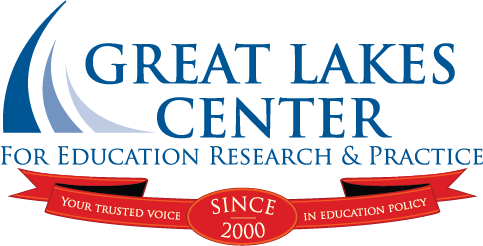
Think Twice Weekly Report
DECEMBER 9, 2023 - DECEMBER 15, 2023
The Think Twice Weekly Report compiles public education-related policy reports, research and articles of interest to policymakers, educators and stakeholders. This list is not exhaustive but is meant to highlight recent reports that may be used to support or undermine the work of our subscribers in supporting public schools. We encourage you to take a moment to scan these reports and determine if they may be used by policy makers to assist or erode your mission.
 Policy Reports
Policy Reports
Curriculum
Source: EdTrust
Date: 12/13/2023
Increasing Access to Advanced Coursework in Kentucky
This brief provides data analyses and a scan of policies and practices in Kentucky for advocates, educators, and policymakers who are leading the work at the state level to increase access to advanced coursework for Black and Latino students.
Legal Issues
Source: Manhattan Institute
Date: 12/14/2023
Unconstitutional Religious Discrimination Runs Rampant in State Programs
"In three recent decisions, the Supreme Court of the United States clarified that the First Amendment's prohibition on religious discrimination extends to public benefit programs that enlist private organizations to advance public goals. In Trinity Lutheran Church v. Comer (2017), the Court held that Missouri violated the Free Exercise Clause by excluding a faith-based preschool from a state program that provided recycled tires for playground resurfacing. In Espinoza v. Montana Departmentc of Revenue (2020), the Court held that the Montana Supreme Court violated the Free Exercise Clause when it invalidated, on state constitutional grounds, a private-school-choice program because it included faith-based schools. And in Carson v. Makin (2022), the Court held that Maine unconstitutionally excluded religious schools from a scholarship program for students in rural school districts.
Read together, these cases make clear that when the government adopts a program that extends public benefits to private organizations, the Free Exercise Clause prohibits it from excluding religious organizations from participating and from requiring them to secularize to participate. Unfortunately, the import of these decisions is not yet universally reflected in government policies on the ground. Although the Court has made clear that the government cannot refuse to extend otherwise available public benefits to organizations because they are religious-or because they do religious things-many dozens, likely even hundreds, of public programs at all levels of government continue to do exactly that.
This report collects and examines state-level programs that run afoul of the First Amendment's nondiscrimination mandate. These programs enlist private organizations to advance a range of goals-education, job training, poverty alleviation, housing, health care-but exclude some organizations from participating because they are religious or limit their participation to "secular" or "nonsectarian" activities. Our report is not comprehensive. Rather, the examples highlighted here are part of a much wider problem that pervades local, state, and federal programs. We hope that this report will provoke a discussion about reforming public programs to comply with the Free Exercise Clause's nondiscrimination principle and provide a road map for lawmakers and advocates concerned about the persistence of religious discrimination in public programs."
 Reports Reviewed
Reports Reviewed
GLC seeks to ensure that policy briefs impacting education reform are based on sound, credible academic research. Below are reviews conducted with GLC support.
Review of The Cost-Effectiveness of Wisconsin's Private School Choice Programs
Source: School Choice Wisconsin
Reviewed by: Stephen Kotok, St. John's University
A recent report from School Choice Wisconsin claims that Wisconsin's voucher programs are highly "productive," achieving better academic outcomes at lower costs than public schools. A closer examination, however, calls into question the validity of these assertions.
Stephen Kotok of St. John's University reviewed The Cost-Effectiveness of Wisconsin's Private School Choice Programs, and identified substantial methodological shortcomings that undermine its conclusions, including reliance on biased comparisons and limited financial accounting.
 What We're Reading
What We're Reading
Research and articles that we want to highlight for subscribers as potential resources:
WHAT IS THE SCHOOL-TO-PRISON PIPELINE, AND HOW DO WE DISRUPT IT?
By: Learning For Justice
Learning for Justice offers a new resource page that highlights LFJ articles and content to open dialogue, shift practices and foster change to benefit all young people. Educators, parents and caregivers can help to change this harmful system by advocating for and implementing practices that prioritize mental health and well-being.
'That's authoritarianism': Florida argues school libraries are for government messaging
By: Douglas Soule, USA Today
Public school libraries are "a forum for government speech," not a "forum for free expression," according to a legal brief.
Penguin Random House, renowned authors join lawsuit challenging Iowa curriculum law
By: Naaz Modan, K-12 Dive
The second challenge to the state's law claims it is too vague and infringes on the freedoms of students, authors and teachers.
'A bizarre coalition': Red and blue states weigh big changes to testing requirements
By: Katelyn Cordero and Juan Perez Jr., Politico
Fueled by worries over the pandemic, equity and learning loss, Republicans and Democrats are rewriting decades' worth of strict standardized testing and graduation requirements.
By the Numbers: How will student demographics shift in the next 30 years?
By: Anna Merod, K-12 Dive
The demographics of the U.S. school-aged population, representing ages 5 through 17, are projected to grow more diverse across racial and ethnic identities over the next three decades, according to recent research by the Civil Rights Project/Proyecto Derechos Civiles at the University of California, Los Angeles.
